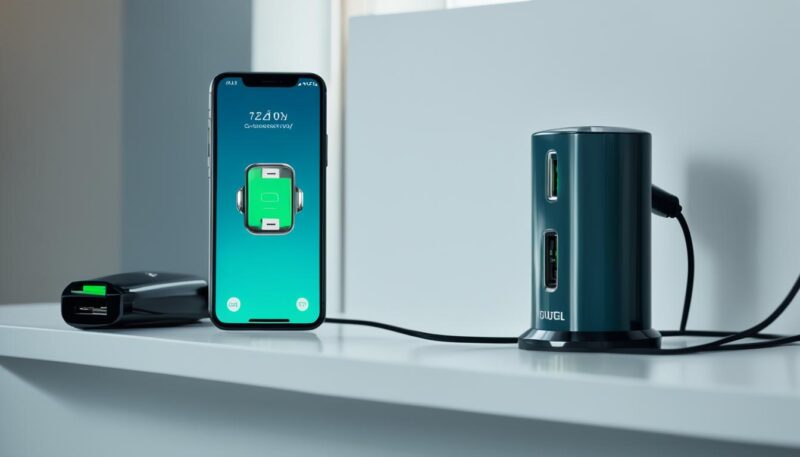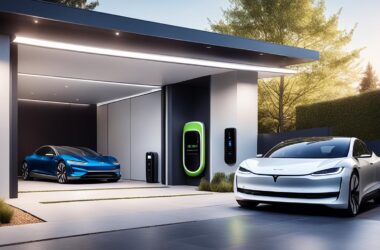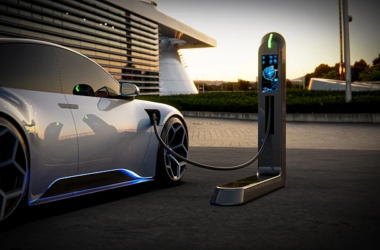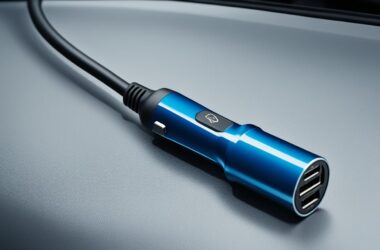Hello, UK electric vehicle (EV) owners! Are you tired of searching for the perfect home car charger? Well, look no further because I’ve got you covered. In this article, I will provide expert insights and reviews of home car chargers in the UK, helping you make an informed decision for your EV charging needs. Whether you’re a first-time buyer or looking to upgrade your current charger, this comprehensive guide will walk you through the options available to you.
From analyzing different types of chargers to their compatibility with various EV models, we will leave no stone unturned. With our detailed evaluations, you’ll have the knowledge to select a charger that meets your specific requirements, ensuring efficient and convenient charging at home.
Key Takeaways:
- Expert insights and reviews of home car chargers in the UK
- Analyze different charger types, compatibility, and charging speeds
- Make an informed decision for your electric vehicle charging needs
- Efficient and convenient charging at home
- Detailed evaluations to help you select the right charger
Understanding Home EV Charging in the UK
In the UK, home EV charging has become increasingly important as more people switch to electric vehicles. Charging your electric vehicle at home offers both convenience and cost-effectiveness, allowing you to start each day with a fully charged battery. With the availability of various home EV chargers, it’s essential to understand their different types and functionalities to make the right choice for your needs.
The Benefits of Home EV Charging
Charging your electric vehicle at home provides several benefits:
- Convenience: With a home EV charger, you have the flexibility to charge your vehicle whenever it’s most convenient for you. You don’t have to rely on public charging stations or wait in queues.
- Cost-effectiveness: Home charging can be more cost-effective than using public charging stations, especially if you have a favorable electricity tariff. You can take advantage of off-peak electricity rates to save on charging costs.
- Ready to go: Starting each day with a fully charged battery means you’re ready to hit the road without any range anxiety. You don’t have to worry about finding charging stations or waiting for your vehicle to charge.
Types of Home EV Chargers
There are two main types of home EV chargers:
- Level 1 Chargers: Also known as trickle chargers, these chargers use a regular household plug (120V) and are suitable for overnight charging. Level 1 chargers are typically slower compared to Level 2 chargers but can still provide a sufficient charge for daily commute or short trips.
- Level 2 Chargers: These chargers require a dedicated power supply (240V) and offer faster charging speeds compared to Level 1 chargers. Level 2 chargers are ideal for those who need to charge their electric vehicles quickly or have longer daily commutes.
When choosing a home EV charger, you also have the option to select a tethered or untethered charger. Tethered chargers come with a cable permanently attached to the charging unit, while untethered chargers require you to use your own charging cable. Both options have their advantages and depend on personal preference and convenience.
| Charger Type | Charging Speed | Tethered/Untethered |
|---|---|---|
| Level 1 Charger | Slower | Both options available |
| Level 2 Charger | Faster | Both options available |
Choosing the right home EV charger depends on factors like your daily mileage, charging needs, and budget. It’s recommended to consult with a qualified electrician or charger installer to ensure compatibility and proper installation.
“Home EV charging offers convenience, cost-effectiveness, and peace of mind for electric vehicle owners in the UK.” – [Expert Name], EV Charging Specialist
Factors to Consider When Choosing a Home Car Charger
When it comes to choosing a home car charger, there are several important factors that you should consider. These factors can help you make an informed decision and ensure that the charger meets your specific needs. In this section, I will discuss the key factors to keep in mind when selecting a home car charger for your electric vehicle.
1. Charging Speed:
One of the most crucial factors to consider is the charging speed of the car charger. The charging speed determines how quickly your electric vehicle will charge, so it’s essential to choose a charger that aligns with your needs and daily usage. Faster charging speeds may be more expensive but can significantly reduce the time it takes to charge your EV.
2. Ease of Use:
Another important factor to consider is the ease of use of the car charger. You’ll want a charger that is user-friendly and convenient to operate. Look for features such as a clear display panel, intuitive controls, and easy-to-follow instructions. A charger with a user-friendly interface makes the charging process hassle-free and saves you time and effort.
3. Installation Process:
The installation process of the home car charger is another crucial consideration. You’ll need to determine if you want a charger that can be easily installed by yourself or if you require professional installation. Some chargers may have specific electrical requirements or need additional equipment for installation. It’s essential to assess your electrical setup and choose a charger that can be installed safely and efficiently.
4. Compatibility and Integration:
Ensure that the car charger you select is compatible with your electric vehicle’s make and model. Additionally, consider the integration of the charger with other smart home systems you may have. Compatibility and integration play a vital role in ensuring a seamless charging experience and a connected home ecosystem.
5. Cost and Efficiency:
The cost of the home car charger and its overall efficiency are significant factors to consider. Evaluate your budget and compare the features and benefits offered by different chargers within your price range. Additionally, consider the charger’s energy efficiency to minimize your electricity costs over time.
6. Tips for Saving Money:
To save money on charging your electric vehicle at home, consider taking advantage of off-peak electricity rates or smart charging features that allow you to schedule charging during lower-cost periods. By optimizing your charging habits, you can reduce your overall charging expenses.
By carefully considering these factors, you can choose a home car charger that suits your needs and provides a reliable and efficient charging solution for your electric vehicle.
This image illustrates the importance of choosing a suitable home car charger for your electric vehicle. The right charger can provide fast and efficient charging, ease of use, and seamless integration into your smart home system.
Top Home Car Charger Models in the UK
When it comes to choosing a home car charger for your electric vehicle, there are numerous options available in the UK market. To help you make an informed decision, I have reviewed some of the top home car charger models below. These models have been selected based on their unique features, charging speeds, and user satisfaction ratings.
1. MEGEAR Level 1-2 EV Charger
The MEGEAR Level 1-2 EV Charger is known for its versatility and compatibility with most electric vehicles. It offers both Level 1 and Level 2 charging capabilities, allowing you to charge your car at home or on the go. With its compact design and easy installation process, this charger is a popular choice among EV owners in the UK.
2. Easee Home Charger
The Easee Home Charger stands out for its sleek and modern design. It offers fast charging speeds and can be easily integrated into your smart home system. This charger also comes with an intuitive mobile app that allows you to monitor your charging sessions and adjust settings remotely for maximum convenience.
3. Anderson A2 Home Charger
The Anderson A2 Home Charger is known for its reliability and durability. It is designed to withstand harsh weather conditions, ensuring consistent performance all year round. With its user-friendly interface and multiple safety features, this charger provides a seamless charging experience for EV owners in the UK.
4. Emporia EV Charger
The Emporia EV Charger offers a combination of affordability and functionality. It provides fast charging speeds while being energy-efficient, helping you save on electricity costs. This charger also comes with built-in surge protection and a user-friendly interface, making it a reliable choice for home charging.
5. Hive Alfen Eve S Line EV Charger
The Hive Alfen Eve S Line EV Charger is known for its advanced smart features. It can be integrated with your smart home ecosystem, allowing you to control and monitor your charging sessions through voice commands or a mobile app. With its sleek design and high charging capacity, this charger offers a premium charging experience.
6. Evec EV Charger
The Evec EV Charger is a popular choice for EV owners in the UK due to its compact size and easy installation process. It offers reliable and efficient charging, ensuring a quick replenishment of your EV’s battery. With its affordable price point and user-friendly interface, this charger provides a practical solution for home charging needs.
These are just a few examples of the top home car charger models available in the UK market. Each charger offers its own unique features and benefits, catering to different needs and preferences. Consider factors such as charging speed, compatibility, and user satisfaction ratings when selecting the right charger for your electric vehicle.
| Model | Charging Speed | Unique Features | User Satisfaction Rating |
|---|---|---|---|
| MEGEAR Level 1-2 EV Charger | Up to 7.2 kW | Level 1 and Level 2 charging capabilities | 4.5/5 |
| Easee Home Charger | Up to 22 kW | Sleek design, smart home integration | 4/5 |
| Anderson A2 Home Charger | Up to 7.4 kW | Weather-resistant, user-friendly interface | 4.3/5 |
| Emporia EV Charger | Up to 11 kW | Energy-efficient, surge protection | 4.2/5 |
| Hive Alfen Eve S Line EV Charger | Up to 22 kW | Smart home integration, high charging capacity | 4.7/5 |
| Evec EV Charger | Up to 7 kW | Compact size, affordable price | 3.9/5 |
Innovative Features in 2024 Home Car Chargers
Home car chargers in 2024 have introduced a range of innovative features that revolutionize the charging experience. These advancements make it more convenient and efficient for electric vehicle (EV) owners to charge their vehicles at home.
Screens for Better User Interaction
One of the notable improvements in home car chargers is the integration of screens for better user interaction. These screens provide real-time charging information, including the battery status, charging speed, and estimated time to full charge. EV owners can easily monitor and manage their charging sessions, ensuring optimal usage and efficiency.
Compatibility with Electricity Meters
2024 home car chargers now come equipped with compatibility with electricity meters. This feature allows users to accurately track the energy consumption and cost of charging their EVs. By integrating with electricity meters, EV owners can monitor their charging expenses, helping them make informed decisions to optimize their charging habits.
Smart Functionalities: Remote Monitoring and Control
Modern home car chargers in 2024 have advanced smart functionalities that enable remote monitoring and control. EV owners can remotely access and manage their charging sessions through dedicated mobile applications or smart home systems. This feature provides convenience and flexibility, allowing users to start, stop, or schedule charging sessions from anywhere, ensuring their EV is ready when they need it.
Integration with Smart Home Ecosystems
Home car chargers in 2024 are designed to seamlessly integrate with smart home ecosystems. This integration enables EV owners to incorporate their charging sessions into their overall smart home automation. They can schedule charging sessions based on renewable energy availability, connect the charger to voice-activated assistants such as Amazon Alexa or Google Assistant, and coordinate charging times with other smart devices to optimize energy usage.
Energy Management Systems for Optimal Charging
2024 home car chargers also incorporate energy management systems for optimal charging. These systems analyze electricity demand and usage patterns to determine the most efficient times to charge an EV. By leveraging off-peak hours or renewable energy generation, EV owners can reduce their charging costs and contribute to a more sustainable energy grid.
| Innovative Features | Description |
|---|---|
| Screens for Better User Interaction | Intuitive screens provide real-time charging information, enhancing user experience. |
| Compatibility with Electricity Meters | Seamless integration with electricity meters allows for accurate tracking of charging expenses. |
| Smart Functionalities: Remote Monitoring and Control | Remote access and managing charging sessions through mobile apps or smart home systems. |
| Integration with Smart Home Ecosystems | Coordination with other smart devices to optimize energy usage and enhance overall smart home automation. |
| Energy Management Systems for Optimal Charging | Analyze energy demand and usage patterns to determine optimal charging times, reducing costs and supporting a sustainable energy grid. |
With these innovative features, home car chargers in 2024 offer a seamless and intelligent charging experience for electric vehicle owners. These advancements bring convenience, control, and efficiency to the process of charging your EV at home.
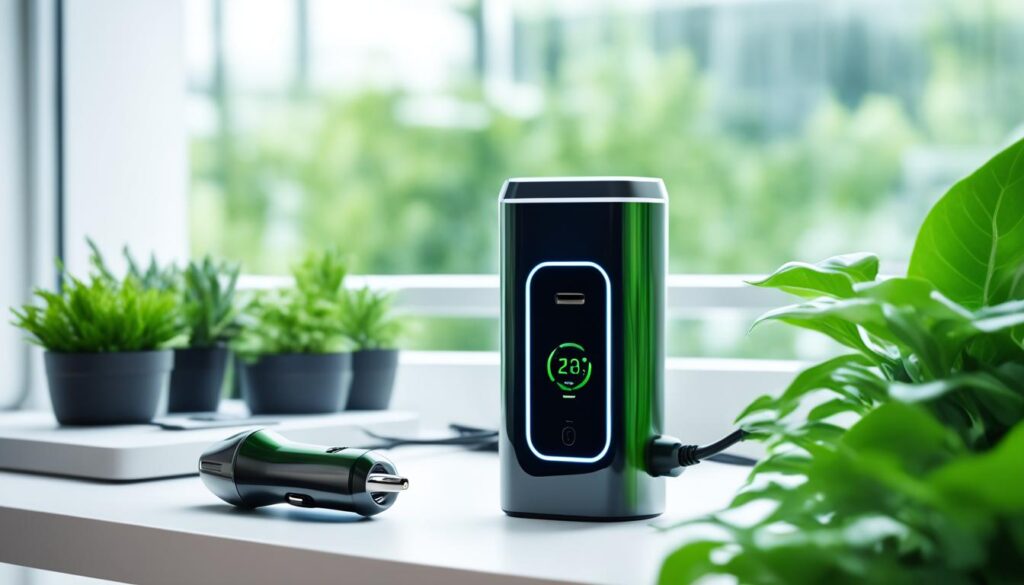
Cost and Installation of Home Car Chargers
When considering the purchase of a home car charger in the UK, it’s essential to understand the cost and installation process. The price of home car chargers can vary depending on various factors, including power output and additional features. On average, the cost ranges from £450 to £1,200.
Factors that influence the cost of home car chargers include:
- Power output: Higher power outputs generally result in higher prices.
- Connectivity and smart features: Chargers equipped with advanced features may have a higher price tag.
- Installation requirements: Some chargers may require additional electrical work or modifications to your property, which can increase the overall cost.
It’s important to note that while some chargers may have a higher upfront cost, they can offer long-term savings in terms of energy efficiency and convenience.
Fortunately, the UK government offers the Electric Vehicle Homecharge Scheme (EVHS) grant, which can help offset the cost of installing a home car charger. The grant provides up to 75% of the total installation cost, up to a maximum of £350. To qualify for the grant, you must use an approved installer and have off-street parking available at your property.
The installation process of a home car charger typically involves the following steps:
- Consultation: An approved installer will assess your property and discuss the most suitable charging solution for your needs.
- Electrical work: If required, the installer will make any necessary electrical modifications to support the charger’s power requirements.
- Mounting: The charger will be securely mounted on a wall or a dedicated charging station.
- Connectivity: The installer will ensure proper connectivity between the charger and your vehicle.
- Testing: The charger will undergo thorough testing to ensure its functionality and safety.
It’s crucial to use an approved installer to ensure the proper installation of your home car charger. Approved installers have the necessary expertise and certifications to carry out the installation efficiently and safely.
FAQs About Home Car Chargers in the UK
As an expert in home car chargers, I understand that you may have some questions about these devices. To help you make informed decisions, I’ve compiled a list of frequently asked questions about home car chargers in the UK.
1. Are home car chargers compatible with different vehicle models?
Yes, home car chargers are designed to be compatible with various electric vehicle models in the UK. Whether you own a Tesla, Nissan Leaf, BMW i3, or any other electric vehicle, you can find a suitable charger that meets the charging requirements of your vehicle.
2. Do I need a smart charger for my home car charger?
While it’s not necessary to have a smart charger, it does offer several advantages. With a smart charger, you can remotely monitor and control your charging sessions, schedule charging during off-peak hours for cost savings, and integrate the charger with your smart home systems for better energy management.
3. Can I fast charge my electric vehicle using a home car charger?
Most home car chargers in the UK support fast charging, but the charging speed also depends on your electric vehicle’s capabilities. It’s important to check the maximum charging speed supported by your vehicle and ensure that the charger you choose is compatible with it.
4. Are there any grants or incentives available for installing a home car charger in the UK?
Yes, the UK government offers grants and incentives to support the installation of home car chargers. The Electric Vehicle Homecharge Scheme (EVHS) provides up to £350 off the cost of purchasing and installing a home car charger. This scheme aims to encourage more people to switch to electric vehicles and promote sustainable transportation.
5. How long does it take to install a home car charger?
The installation time for a home car charger depends on various factors, such as your property’s electrical infrastructure and the complexity of the installation. On average, the installation process takes around 2-4 hours. It’s important to engage an approved installer who will ensure a safe and efficient installation.
6. Can I claim reimbursement for the installation of a home car charger?
Yes, you can claim reimbursement for the installation of a home car charger through the Electric Vehicle Homecharge Scheme (EVHS). This scheme allows you to claim up to 75% of the installation cost, capped at £350. Make sure to keep all the necessary documentation and follow the guidelines provided by the scheme.
“Installing a home car charger not only provides convenience but also supports the transition to clean and sustainable transportation in the UK.” – Expert Electrician
Now that you have answers to these frequently asked questions, you can confidently choose a home car charger that meets your needs and preferences. Take advantage of the grants and incentives available in the UK to make your charging experience even more affordable. If you have any further questions, feel free to reach out to us.
| Question | Answer |
|---|---|
| 1. Are home car chargers compatible with different vehicle models? | Yes, home car chargers are designed to be compatible with various electric vehicle models in the UK. |
| 2. Do I need a smart charger for my home car charger? | While it’s not necessary to have a smart charger, it does offer several advantages such as remote monitoring and control. |
| 3. Can I fast charge my electric vehicle using a home car charger? | Most home car chargers in the UK support fast charging, but the charging speed also depends on your electric vehicle’s capabilities. |
| 4. Are there any grants or incentives available for installing a home car charger in the UK? | Yes, the UK government offers grants and incentives through the Electric Vehicle Homecharge Scheme (EVHS). |
| 5. How long does it take to install a home car charger? | The installation time for a home car charger varies, but on average, it takes around 2-4 hours. |
| 6. Can I claim reimbursement for the installation of a home car charger? | Yes, you can claim reimbursement through the Electric Vehicle Homecharge Scheme (EVHS). |
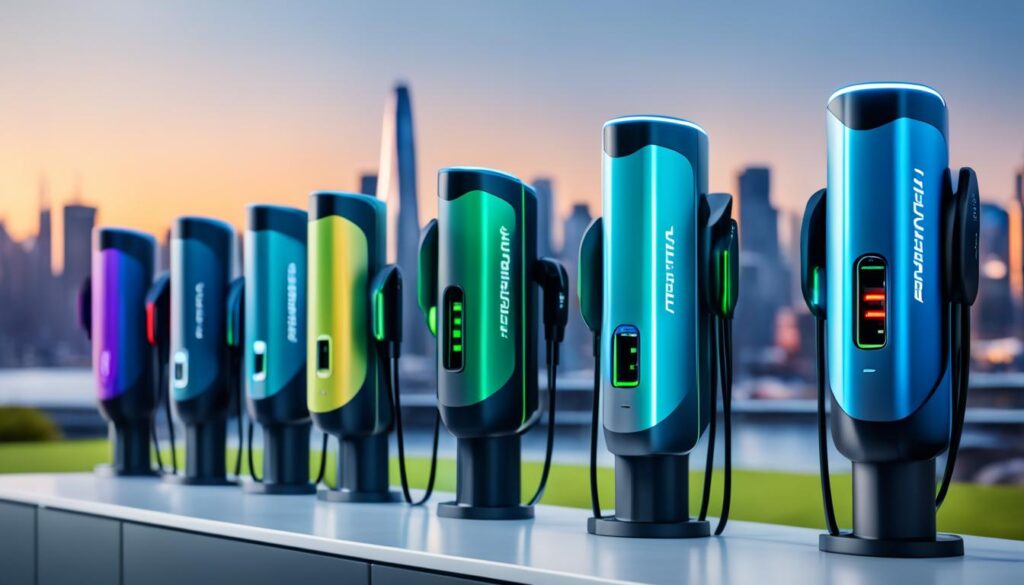
Conclusion
In conclusion, home car chargers are essential for the convenience and cost-effectiveness of charging electric vehicles in the UK. When choosing a charger, it is crucial to consider factors such as charging speed, ease of use, and compatibility with your electric vehicle. By selecting the right charger, EV owners can enjoy a seamless charging experience in the comfort of their own homes.
The advancements in technology and innovative features found in 2024 home car chargers have made charging electric vehicles even more efficient and user-friendly. With features like interactive screens, compatibility with electricity meters, and smart functionalities for remote monitoring and control, the charging process has become more intuitive and integrated with the overall smart home ecosystem.
For those considering installing a home car charger, it is important to understand the cost and installation process. The cost of home car chargers in the UK can range from £450 to £1,200, depending on various factors. However, the Electric Vehicle Homecharge Scheme (EVHS) grant offered by the UK government can provide financial assistance. Moreover, hiring an approved installer ensures a safe and reliable installation process.
In summary, home car chargers are a practical and efficient solution for EV owners in the UK. By taking into account the reviews and expert insights, considering factors such as charging speed and compatibility, and staying informed about the latest advancements, you can make an informed decision when selecting a home car charger for your electric vehicle.





